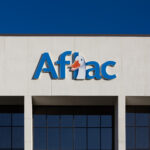Leading up to a midnight deadline, West Virginia lawmakers scrambled Saturday to give teachers raises and hike the minimum wage.
A Jan. 9 chemical spill into the water supply loomed over the session, which began three days before 300,000 people learned their water was contaminated. But the issue didn’t produce late-night drama Saturday. With little fanfare, the House of Delegates unanimously voted around 10 p.m. to send a spill response bill to Gov. Earl Ray Tomblin.
The House and Senate were already largely in agreement on the bill by Friday night.
“I’m tickled to death we got that done,” said Senate President Jeff Kessler, D-Marshall. “People demanded we have an effective water bill to set up regulatory framework that would maintain the health and safety of the people, and I think we did.”
Lawmakers spent most of session painstakingly crafting a bill to safeguard water systems and above-ground storage tanks. The final product adds inspections for many storage tanks, requires more safety planning for water systems and includes long-term health monitoring for people exposed to the little known chemicals that spilled.
Both chambers agreed on a bill letting people with concealed-carry permits bring guns to city-owned recreational facilities, including swimming pools and after-school centers. The proposal would require people to store guns securely out of view and access to others.
Charleston Mayor Danny Jones called the bill “disgraceful.” He said it would threaten the safety of children. Tomblin expressed some concerns over the bill, but said he’s still reviewing it.
“There seemed to be a little bit of overlap about where you could or could not carry a gun,” Tomblin said.
Packs of six or so lawmakers crammed into hallways, corners and backs of the chambers to strike deals on other top issues, like the prescription-only cold medicine push. Lawmakers watered down the bill, offering to cut in half how much Sudafed-like medication someone can buy in a year. They also proposed letting counties set up referendums to make pseudoephedrine drugs prescription-only locally.
But time ran out on an agreement, which one bill advocate attributed to the pharmaceutical industry’s lobbying and ad campaigns against the bill.
“It’s absolutely shameful that the industry was able to frighten legislators so much that that we couldn’t get anything done this session,” said Del. Don Perdue, D-Wayne and health committee chairman.
The two chambers compromised on a minimum wage hike, which would bump the current standard — $7.25 per hour — by 75 cents a year for the next two years.
Plenty more issues were still looming. The House and Senate still weren’t on the same page about raises for teachers.
Tomblin said the state can live with the $1,000 pay increase endorsed by the House, even though he and the Senate proposed a smaller raise.
The Greenbrier resort succeeded in a last-minute push for millions of dollars in tax credits for a new medical facility. Tomblin said he will review the bill, but commented that “the concept of having that kind of service is a great thing.” The proposal did not arise formally until a Friday committee meeting.
Tomblin has 15 days from when lawmakers send him a bill to sign it, veto it or let it become law without his action.
Lawmakers won’t be out of the Capitol for long. Next week, the House and Senate will negotiate a compromised budget for the upcoming year. House Finance Chairman Del. Brent Boggs, D-Braxton, said the state is facing a $64 million shortfall. Lawmakers are looking to tap into at least $83.8 million of the state’s “rainy day” reserve account.
Sarah Plummer in Charleston contributed to this report
Was this article valuable?
Here are more articles you may enjoy.


 Aflac Hit With Class Action Over Data Breach of Customer Info
Aflac Hit With Class Action Over Data Breach of Customer Info  Erie Insurance Facing 2 Class Actions Claiming Data Breach
Erie Insurance Facing 2 Class Actions Claiming Data Breach  Erie Insurance Restores Online Access for Customers; Still Working on Other Systems
Erie Insurance Restores Online Access for Customers; Still Working on Other Systems  As Hurricane Season Picks Up, Key Forecasting Tool Access Set to End
As Hurricane Season Picks Up, Key Forecasting Tool Access Set to End 

